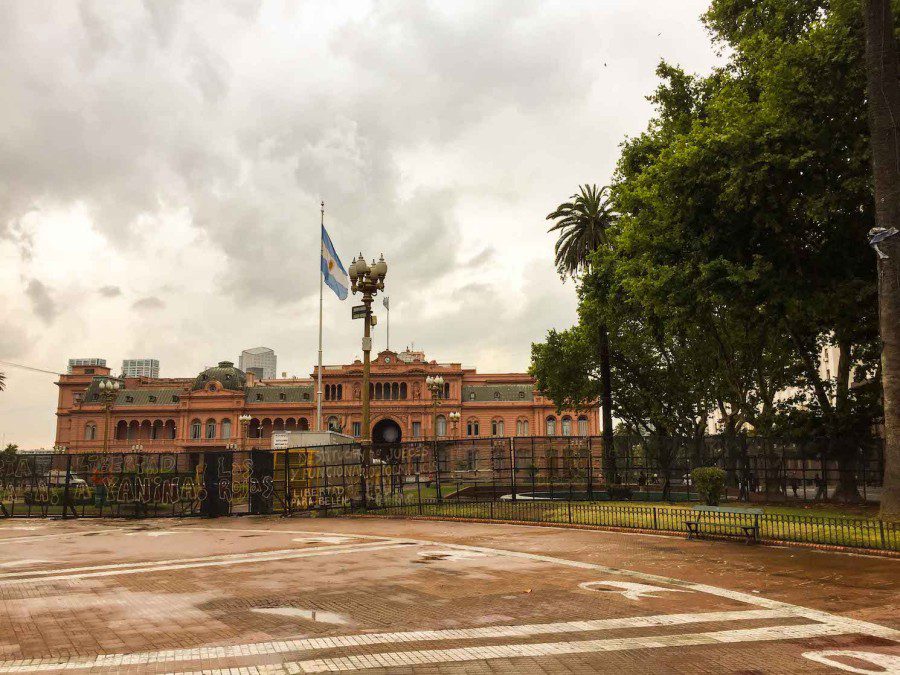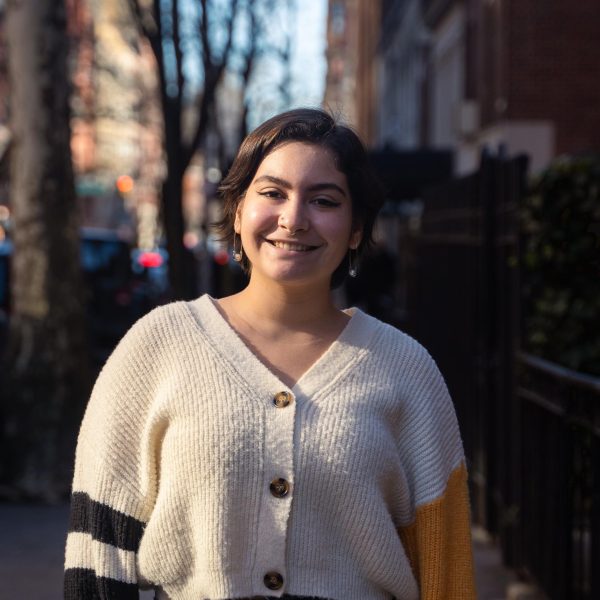NYU Buenos Aires brings Latine students closer to their heritage
Three Latina students studying at NYU Buenos Aires reflect on how their time abroad in Latin America mended their relationship with identity and culture.
File photo: The Casa Rosada in Buenos Aires in 2016. (Camila Ceballos for WSN)
October 24, 2022
As the only study abroad site in Latin America, NYU Buenos Aires is a place for many Latine students to connect to their roots, learn more about their history and embrace their heritage, even if they aren’t from Argentina.
“I wanted to dive into something closer to my culture because I’ve always been in Michigan — it’s a bubble there,” LS sophomore Elsy Bonilla Aguilar said. “I never was really able to get a first-hand experience in Latin America. I studied in Italy my first year, and I was really far away from anything familiar to my culture. I needed some refresher on my roots.”
Even though she mentioned she was excited in Buenos Aires, Bonilla Aguilar was still worried about feeling alienated as a non-white Latina, like she had been in Italy. After feeling ostracized in Europe for not being white, Bonilla Aguilar was concerned about the stereotype that Buenos Aires is the European city of Latin America. However, during orientation week, NYU Buenos Aires hosted talks about ethnic communities in Argentina, which eased much of her anxiety.
“In the first few days, I really felt like I stood out because I was anticipating that I was going to be the only brown person there or person of color there,” Bonilla Aguilar said. “But as I learned about the Indigenous, morena and mestizo communities here, I felt like ‘Oh, there are a lot of people here who not only know my struggle,’ but I could find a sense of community.”
For Steinhardt junior Jackelyn Leon, the lack of apparent diversity in Buenos Aires was surprising. After studying abroad at NYU Paris, which she found very diverse, she found it strange that Buenos Aires wasn’t the same.
“There were more people of color in Paris,” Leon said. “It definitely does feel more comforting to see a more diverse range of people, which you don’t really see here.”
In Paris, Leon also felt that her culture was more accessible. There, she found a couple of Mexican grocery stores, whereas in Buenos Aires, she hasn’t found any. Leon also noted that the Mexican restaurants in Paris, which were typically Mexican-owned, seemed more authentic.
Despite missing the Mexican food her family would make at home, the distance and location make her feel more connected to her culture.
“I’ve been listening to so much more Mexican music over here,” Leon said. “I am rewatching Mexican novelas because I’m like ‘I’m in Latin America, let me watch some novelas.’”
Despite the differences between Latin American countries, there is a sense of shared culture that has comforted many Latine students in Argentina, particularly in how people interact with each other. As a Salvadoran-American, CAS junior Deborah Molina is used to physical affection when greeting or saying goodbye to them.
“Hugging or a kiss on the cheek — those types of welcoming touches that people aren’t used to,” Molina said. “I think other kids at NYU have expressed, ‘Woah’ when that happens; they feel a little put off, but I grew up like that.”
This familiarity extends beyond language. In clubs, it is common for students to hear music like reggaeton instead of pop or techno, and instead of the Super Bowl, everyone in Buenos Aires anticipates the World Cup.
“Seeing things that are considered a minority pastime, a minority thing but here be the dominant culture,” Molina said. “That is a nice change.
For Leon, Molina and Bonilla Aguilar, being in Buenos Aires has been an opportunity to feel closer to their cultures and embrace their heritage.
“I want to express my Latinidad like crazy here because that’s what I’m surrounded by,” Bonilla Aguilar said. “I think that for the first time I am able to feel like I am part of the collective because, in the States, I am always Latina. I am always separate; I am the minority. Here, I am just like everyone else.”
Contact Juliana Guarracino at [email protected].

























































































































































